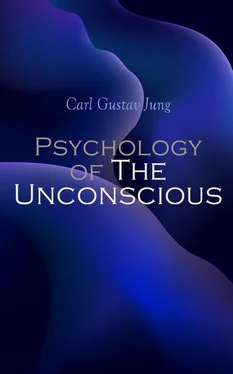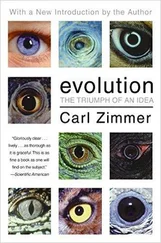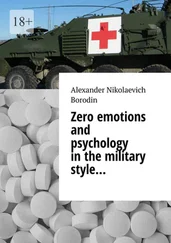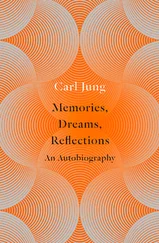Who hath first given unto me, that I should repay him?
Whatsoever is under the whole heaven is mine.”
— Job xl: 15–20, 23–24; xli: 1, 8, 10–11.
God says this in order to bring his power and omnipotence impressively before Job’s eyes. God is like the behemoth and the leviathan; the fruitful nature giving forth abundance,—the untamable wildness and boundlessness of nature,—and the overwhelming danger of the unchained power. [80]
But what has destroyed Job’s earthly paradise? The unchained power of nature. As the poet lets it be seen here, God has simply turned his other side outwards for once; the side which man calls the devil, and which lets loose all the torments of nature on Job, naturally for the purpose of discipline and training. The God who created such monstrosities, before whom the poor weak man stiffens with anxiety, truly must hide qualities within himself which are food for thought. This God lives in the heart, in the unconscious, in the realm of metapsychology. There is the source of the anxiety before the unspeakably horrible, and of the strength to withstand the horrors. The person, that is to say his conscious “I,” is like a plaything, like a feather which is whirled around by different currents of air; sometimes the sacrifice and sometimes the sacrificer, and he cannot hinder either. The Book of Job shows us God at work both as creator and destroyer. Who is this God? A thought which humanity in every part of the world and in all ages has brought forth from itself and always again anew in similar forms; a power in the other world to which man gives praise, a power which creates as well as destroys, an idea necessary to life. Since, psychologically understood, the divinity is nothing else than a projected complex of representation which is accentuated in feeling according to the degree of religiousness of the individual, so God is to be considered as the representative of a certain sum of energy (libido). This energy, therefore, appears projected (metaphysically) because it works from the unconscious outwards, when it is dislodged from there, as psychoanalysis shows. As I have earlier made apparent in the “Bedeutung des Vaters,” the religious instinct feeds upon the incestuous libido of the infantile period. In the principal forms of religion which now exist, the father transference seems to be at least the moulding influence; in older religions, it seems to be the influence of the mother transference which creates the attributes of the divinity. The attributes of the divinity are omnipotence, a sternly persecuting paternalism ruling through fear (Old Testament) and a loving paternalism (New Testament). These are the attributes of the libido in that wide sense in which Freud has conceived this idea empirically. In certain pagan and also in certain Christian attributes of divinity the maternal stands out strongly, and in the former the animal also comes into the greatest prominence. [81]Likewise, the infantile, so closely interwoven with religious phantasies, and from time to time breaking forth so violently, is nowhere lacking. [82]All this points to the sources of the dynamic states of religious activity. These are those impulses which in childhood are withdrawn from incestuous application through the intervention of the incest barrier and which, especially at the time of puberty, as a result of affluxes of libido coming from the still incompletely employed sexuality, are aroused to their own peculiar activity. As is easily understood, that which is valuable in the God-creating idea is not the form but the power, the libido. The primitive power which Job’s Hymn of Creation vindicates, the unconditional and inexorable, the unjust and the superhuman, are truly and rightly attributes of libido, which “lead us unto life,” which “let the poor be guilty,” and against which struggle is in vain. Nothing remains for mankind but to work in harmony with this will. Nietzsche’s “Zarathustra” teaches us this impressively.
We see that in Miss Miller the religious hymn arising from the unconscious is the compensating amend for the erotic; it takes a great part of its materials from the infantile reminiscences which she reawakened into life by the introversion of the libido. Had this religious creation not succeeded (and also had another sublimated application been eliminated) then Miss Miller would have yielded to the erotic impression, either to its natural consequence or to a negative issue, which would have replaced the lost success in love by a correspondingly strong sorrow. It is well known that opinions are much divided concerning the worth of this issue of an erotic conflict, such as Miss Miller has presented to us. It is thought to be much more beautiful to solve unnoticed an erotic tension, in the elevated feelings of religious poetry, in which perhaps many other people can find joy and consolation. One is wrong to storm against this conception from the radical standpoint of fanaticism for truth.
I think that one should view with philosophic admiration the strange paths of the libido and should investigate the purposes of its circuitous ways.
It is not too much to say that we have herewith dug up the erotic root, and yet the problem remains unsolved. Were there not bound up with that a mysterious purpose, probably of the greatest biological meaning, then certainly twenty centuries would not have yearned for it with such intense longing. Doubtless, this sort of libidian current moves in the same direction as, taken in the widest sense, did that ecstatic ideal of the Middle Ages and of the ancient mystery cults, one of which became the later Christianity. There is to be seen biologically in this ideal an exercise of psychologic projection (of the paranoidian mechanism, as Freud would express it). [83]The projection consists in the repressing of the conflict into the unconscious and the setting forth of the repressed contents into seeming objectivity, which is also the formula of paranoia. The repression serves, as is well known, for the freeing from a painful complex from which one must escape by all means because its compelling and oppressing power is feared. The repression can lead to an apparent complete suppression which corresponds to a strong self-control. Unfortunately, however, self-control has limits which are only too narrowly drawn. Closer observation of people shows, it is true, that calm is maintained at the critical moment, but certain results occur which fall into two categories.
First , the suppressed effect comes to the surface immediately afterwards; seldom directly, it is true, but ordinarily in the form of a displacement to another object (e. g. a person is, in official relations, polite, submissive, patient, and so on, and turns his whole anger loose upon his wife or his subordinates).
Second , the suppressed effect creates compensations elsewhere. For example, people who strive for excessive ethics, who try always to think, feel, and act altruistically and ideally, avenge themselves, because of the impossibility of carrying out their ideals, by subtle maliciousness, which naturally does not come into their own consciousness as such, but which leads to misunderstandings and unhappy situations. Apparently, then, all of these are only “especially unfortunate circumstances,” or they are the guilt and malice of other people, or they are tragic complications.
One is, indeed, freed of the conscious conflict, nevertheless it lies invisible at one’s feet, and is stumbled over at every step. The technic of the apparent suppressing and forgetting is inadequate because it is not possible of achievement in the last analysis—it is in reality a mere makeshift. The religious projection offers a much more effectual help. In this one keeps the conflict in sight (care, pain, anxiety, and so on) and gives it over to a personality standing outside of one’s self, the Divinity. The evangelical command teaches us this:
Читать дальше












